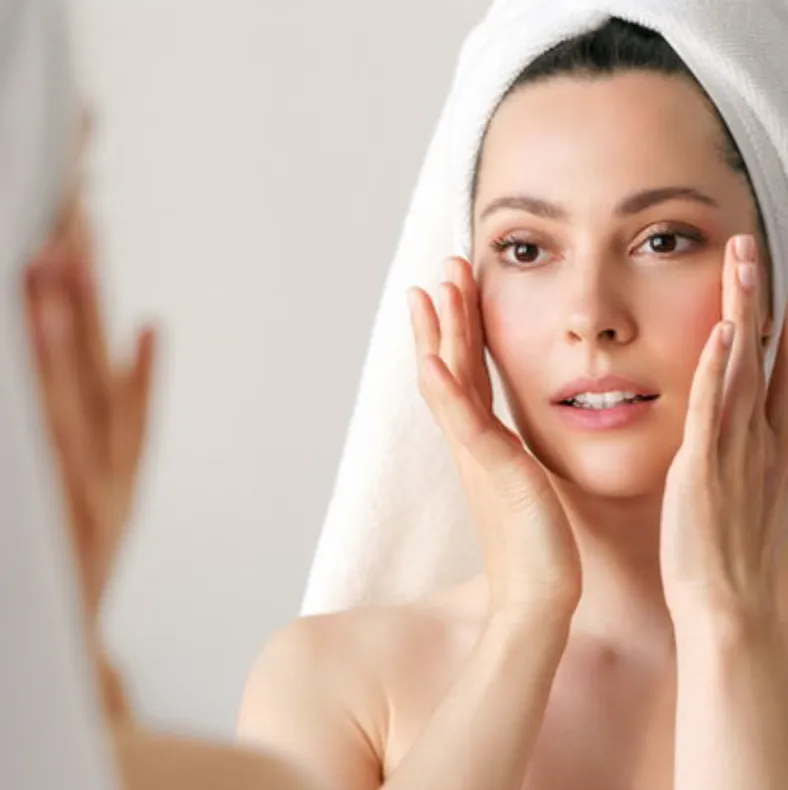St. Pete Location
Bradenton Location
Patient Education
We're passionate about helping people achieve their healthiest, happiest skin. Whether you're struggling with acne, eczema, rosacea, or any other skin concern, we're here to offer support, information, and inspiration.

How to Use Topical Retinoids | My Skin
Topical retinoids are available in many over the counter skin care products as well as prescription strength medications. They work to treat a variety of skin care problems ranging from fine lines and wrinkles to acne breakouts and psoriasis. Common side effects of using topical retinoids include: dryness, scaling, peeling, irritation, redness, burning, stinging, itching, and sun sensitivity.
Below are some general tips on how to use a topical retinoid, but individual needs may vary. Follow your doctor’s guidance for how you should use a topical retinoid.
Topical retinoids are typically applied at bedtime and not in the morning.
Before applying a topical retinoid, wash with a mild soap or cleanser and pat dry. To minimize irritation, wait until the skin is completely dry (15-20 minutes) before applying a topical retinoid.
Apply a very thin coat of the topical retinoid to the treatment area. Typically, a dermatologist recommends applying a pea sized amount for the entire face. Do not apply to the eyelid skin.
As the medication can be irritating and drying, apply every 2nd or 3rd night to start, increasing to nightly application only as tolerated.
To help minimize dryness and irritation, apply a moisturizer on top of the topical retinoid.
As the medication causes sun sensitivity, diligent sun protection and sunscreen use is recommended. Use a broad spectrum sunscreen daily, SPF 30 or higher.
If redness and/or irritation occurs, discontinue use of the topical retinoid but continue moisturizing until the skin returns to normal. Once the redness and irritation has completely resolved, re-start the topical retinoid- applying every 2nd or 3rd night and gradually working up to nightly application only as tolerated.
Generally, topical retinoid use should be discontinued for a period of time before waxing or other cosmetic treatments such as chemical peels, microdermabrasion, or laser therapy. Discuss with your doctor or skin care specialist before pursuing any cosmetic treatments.
Do not use topical retinoids if you are pregnant or actively trying to conceive.
Disclaimer:
The information on this website is provided for educational and information purposes only and is not medical advice. Always consult with a licensed medical provider and follow their recommendations regardless of what you read on this website. If you think you are having a medical emergency, dial 911 or go to the nearest emergency room. Links to other third-party websites are provided for your convenience only. If you decide to access any of the third-party websites, you do so entirely at your own risk and subject to the terms of use for those websites. Neither My Skin by Leah Michel, APRN, FNP-BC, nor any contributor to this website, makes any representation, express or implied, regarding the information provided on this website or any information you may access on a third-party website using a link. Use of this website does not establish a doctor-patient relationship. If you would like to request an appointment with a health care provider, please call our office at (727) 295-7223.
If you have any questions or concerns about your skin & would like to schedule an appointment at our St. Pete dermatology office or Brandenton dermatology office, please call us today!
St. Pete Location
111 2nd Ave NE., Suite 1406
St Petersburg, FL 33701
Plaza Tower- Downtown St Pete
Phone: (727) 295-7223
Bradenton Location
4301 32nd St. W., Suite D2
Bradenton, FL 34277
Phone: (941) 330-5805






